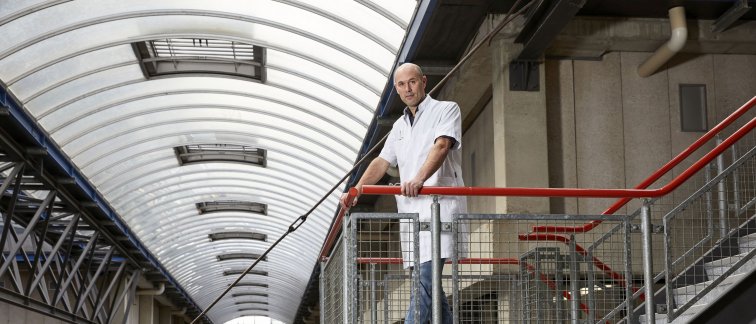Internist-infectiologist Joppe Hovius has taken over as the new director of our institute as of January 1st, alongside immunologist Reina Mebius, who joined earlier. Previously, Prof. Hovius served as program leader for our Infectious Diseases program. Alongside his professorship in internal medicine, he also coordinates the Lyme Center at Amsterdam UMC. Get to know Prof. Hovius and his plans for advancing our research institute in this article.
The timing of our name change, effective January 1, 2024, from the ‘Amsterdam Institute for Infection and Immunity’ to the 'Amsterdam Institute for Immunology & Infectious Diseases' is therefore not coincidental. With the new leadership in place, Prof. Hovius explains a shift in direction: "While building on past achievements, we are adding more focus by returning to two programs, Immunology and Infectious Diseases. Within these programs, we will introduce a matrix structure with overarching themes and specific topics to better serve our goals."
With approximately 1100 researchers, including around 600 PhD candidates, AII is one of the largest research institutes at Amsterdam UMC. It consolidates expertise in immune system research and infectious diseases and collaborates with strategic partners such as READE, Sanquin, GGD Amsterdam, the Amsterdam Institute for Global Health and Development (AIGHD), and the HIV Monitoring Foundation. During the COVID-19 pandemic, the institute played a prominent role, beyond scientific contributions. Prof. Hovius: "We had two members on the Outbreak Management Team."
According to Prof. Hovius, AII is one of the larger research institutes focusing on immunology and infectious diseases in the Netherlands, with researchers boasting a significant international network. In the coming years, our aim is to establish connections with international counterparts and other research institutes within Amsterdam UMC, recognizing the benefits of synergy between research entities on the quality and impact of research.
For this reason, we emphasize increased collaboration between researchers and clinicians. While historically centered on basic science, Prof. Hovius acknowledges that clinicians may have had less affinity with the research institute. The goal now is to integrate physicians and clinical researchers more actively into the institute, possibly as theme or topic leaders. "As a research institute, we aim to foster a sense of community, acting as a catalyst for interdisciplinary collaboration and facilitating enhanced research. This environment encourages diverse scientists, physicians, clinical researchers, and strategic partners to collectively elevate our research community."
Text: Jasper Enklaar / Photo: Mark Horn

